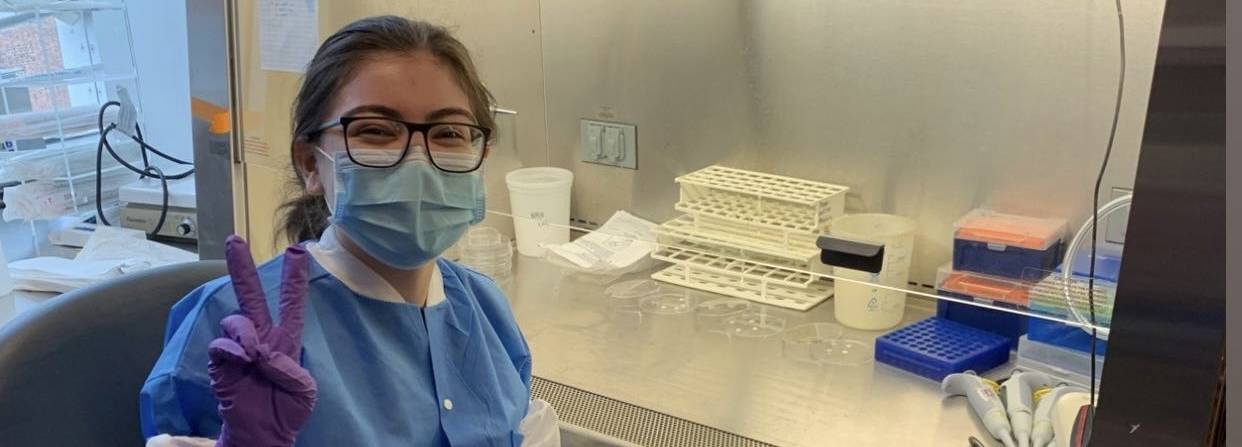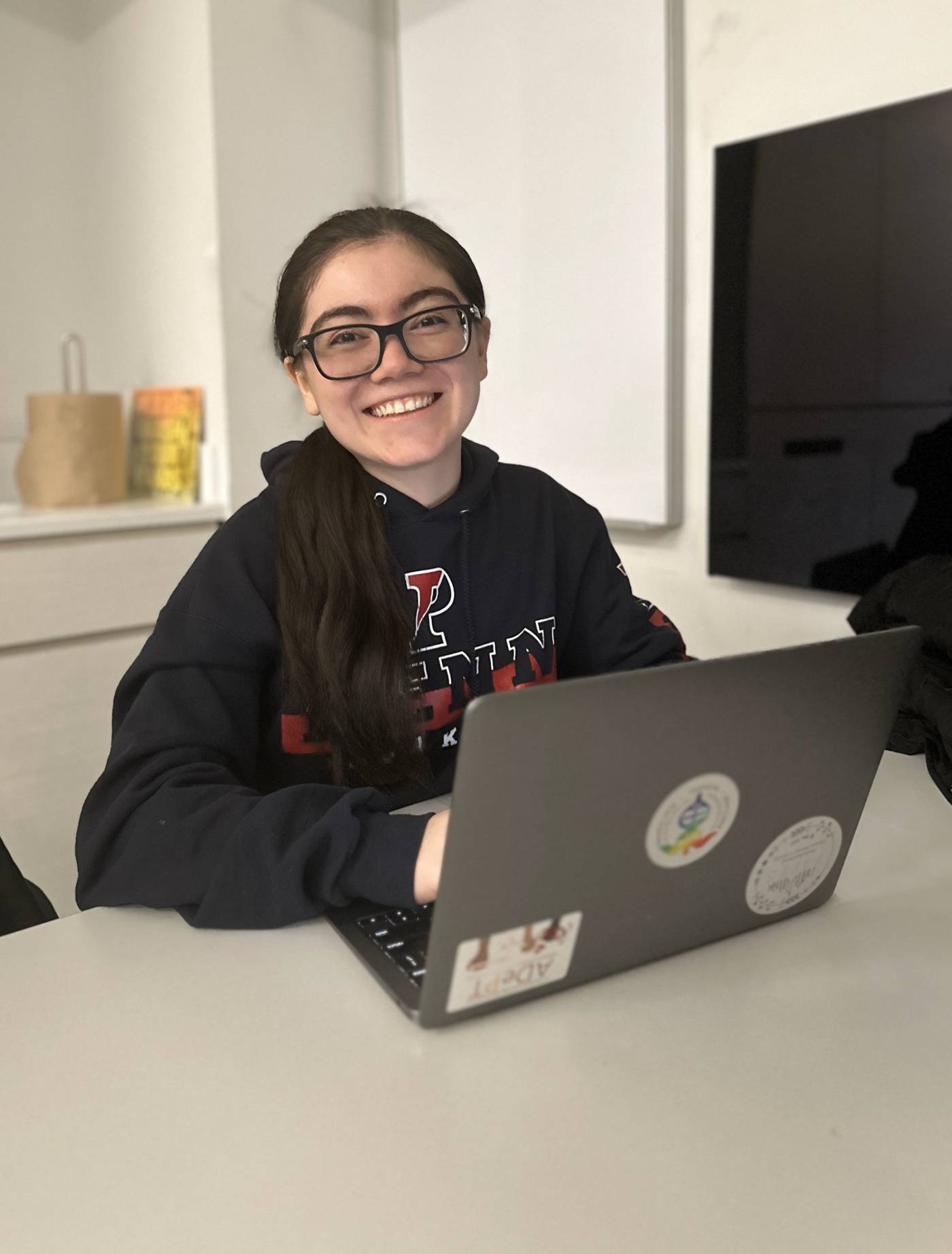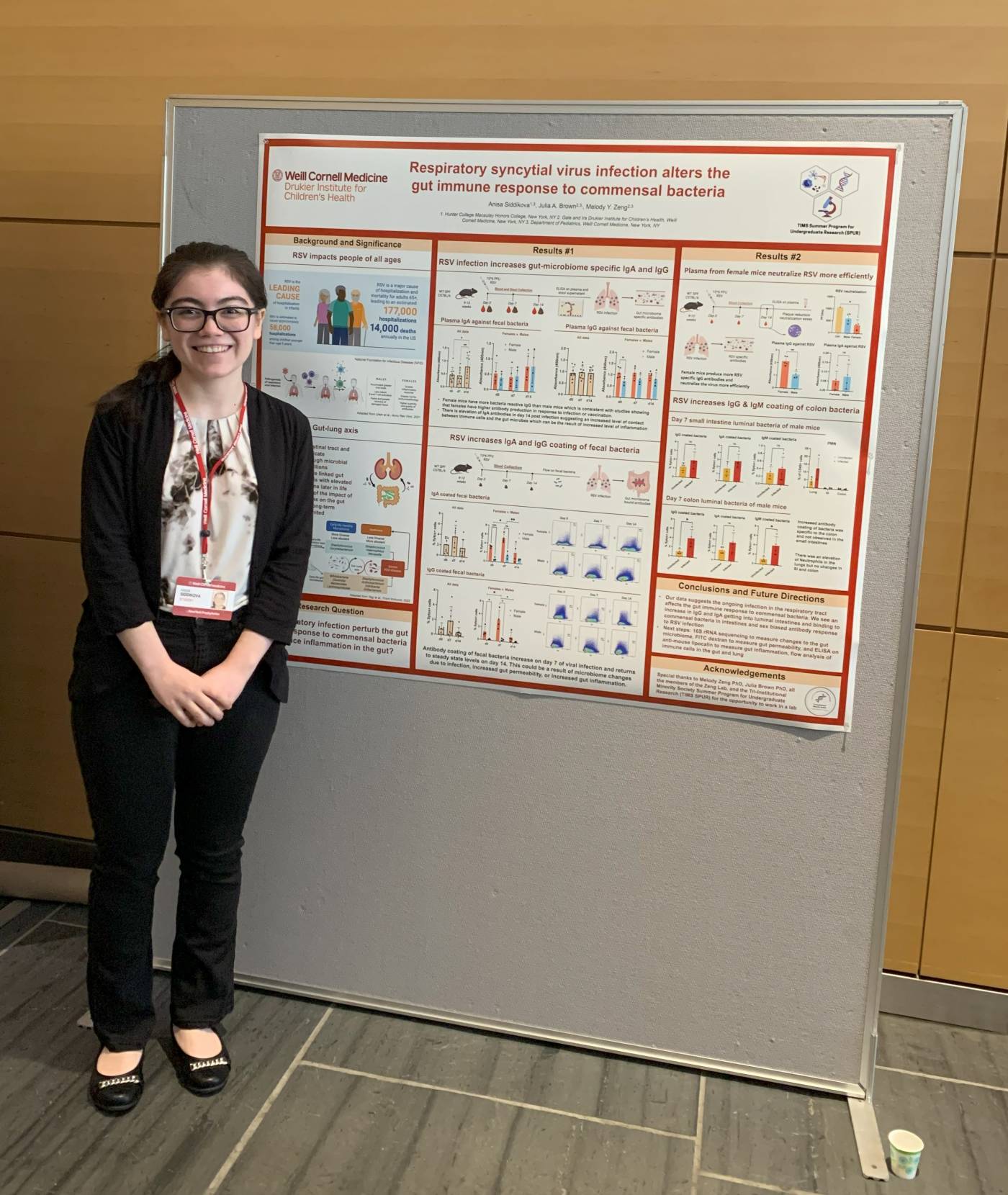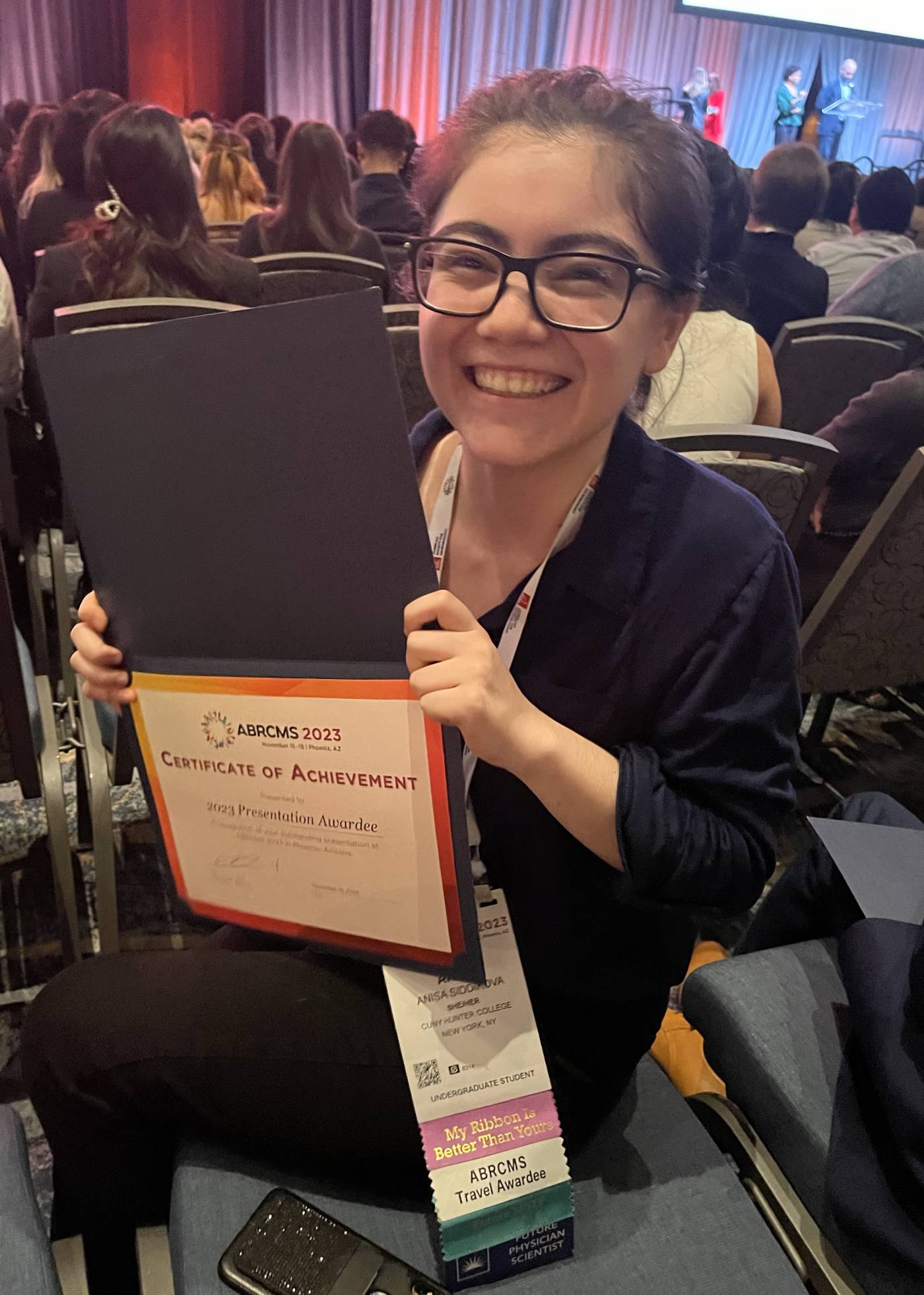Anisa Siddikova
Anisa was a member of the SSRP'21 cohort, where the program was held virtually due to the COVID-19 pandemic. Here, she recounts her experience as part of the RNA Virus Discovery Track!

A current sophomore at Hunter College, Anisa participated in the SSRP in 2021, in the midst of the COVID pandemic. However, having the program virtually didn’t stop her from having an amazing time discovering new things in science and finding a passion for infectious disease research!

What were you hoping to gain from the SSRP program?
I was hoping to gain research experience to determine whether I wanted to pursue research as a career.
How has your participation in the program impacted your interest in science/research?
This experience reinforced my interest in microbiology, in particular, how contaminants in our environment impact our health and new ways to treat bacterial infections. It sparked my interest in medicine and led me to want to pursue research as a career.
I realized science does not have to be all benchwork. We worked a lot with metagenomics tools such as BLAST, Galaxy, and IDSeq which only required a computer

How did the SSRP impact your personal growth?
The program’s supportive environment gave me the opportunity to enhance my communication skills and confidence in speaking about science as we presented our findings at the SSRP symposium
What advice would you give to incoming SSRP students to help them make the most of their time?
Learn to ask for help when you don’t understand what is going on.

Favorite Memory from SSRP?
Although my experience was virtual, SSRP incorporated a hands on portion which made the learning experience online fun and interesting. In the RNA discovery track, we were sent supplies so that we could collect water samples from a local body of water and perform small tests on it such was measuring pH before sending it to the lab at Rockefeller.
Anisa participated in the RNA Virus Hunters Track. Her project focused on collecting water samples from local bodies of water and using metagenomics and bioinformatics tools to analyze the RNA and DNA to determine bacterial origin. Her and her research partner discovered the presence of antibiotic-resistant bacteria and petroleum hydrocarbon degrading bacteria.
